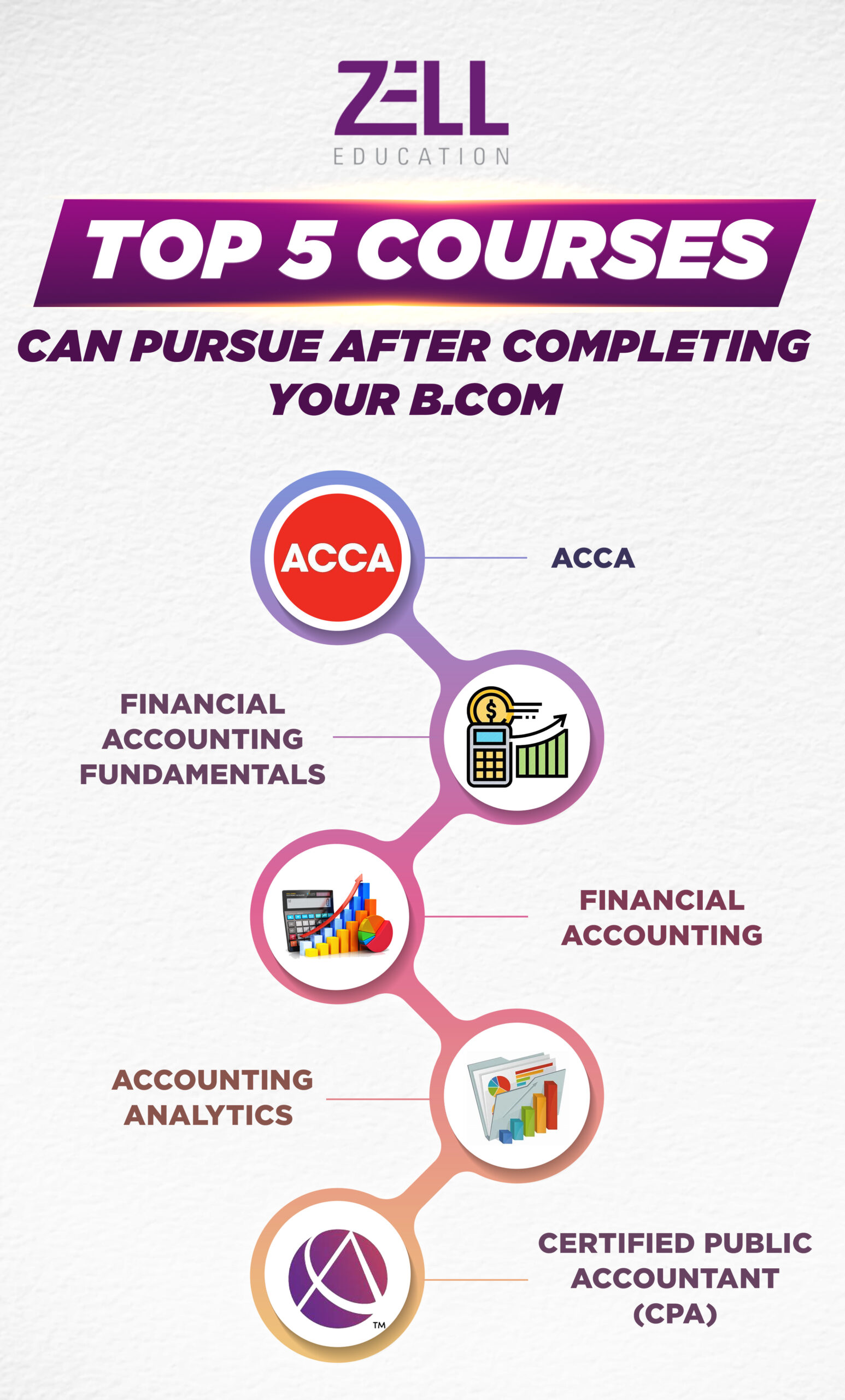One of the most popular undergraduate courses is the Bachelor of Commerce, B.Com. It is the most popular course that trains students to pursue a career in accounting, finance, and business management. However, in today’s competitive job market, it may not be sufficient to have a B.Com degree to get a good job. Most employers look for candidates with other skills and qualifications to make sure that they are competent enough.
The accounting industry is, by nature, competitive. It also calls for constantly upgrading your expertise and knowledge in the field. This post is about whether just a B.Com would be enough or if more courses and certifications are necessary for students to pursue a career in accountancy.
The Importance of Additional Accounting Courses and Certifications
Although a B.Com degree is an excellent starting point for an accountancy career, it should be noted that the B.Com degree is a broad degree, encompassing many subjects. It would give students a general view of accounting principles, finance, taxation, and business management. However, to qualify as an accountant, students need a deep knowledge of the subject, among other related matters.
More accounting courses will allow the students to have technical skills and expertise that will help them be effective in their careers as accountants. The courses will be specialised in financial accounting, managerial accounting, taxation, auditing, and all other related topics, enabling the students to have adequate knowledge to be successful in the area.
Besides, these courses can be studied in parallel with the B.Com degree so that a basic knowledge of accounting can be acquired simultaneously with the technical skills.
Many accounting courses are offered both online and offline. Online accounting classes are really convenient for those who are not able to attend classes in the normal classrooms because of work or some other engagement. Accounting online courses help students to study at their own pace. Most online accounting courses come with videos, quizzes, and forums for discussions.
The Benefits of Accounting Certifications
In addition to further courses on accounting, accounting certifications may make a student more successful in the workplace. Accounting certifications refer to specialised qualifications that will prove a student’s professional competence in a particular aspect of accounting.
For example, a Certified Public Accountant (CPA) certification is an established professional requirement in accounting; hence it is considered for people aspiring to specialise in public accountancy. The requirement of getting a CPA certificate mandates candidates to pass an intensive test and meet requirements about education and experience.
Other accounting certifications are the Certified Management Accountant (CMA) program, Certified Internal Auditor (CIA), and Certified Fraud Examiner (CFE). All of these certifications specialise in different fields of accounting, so this can be helpful to the students who would want to specialise in the field.
Best Accounting Courses and Certifications
There are so many accounting courses and certifications one can study from. Selecting the best out of the lot can become a headache. Here’s a compilation of some of the most prominent accounting courses and certifications for students wanting to start their careers as accountants.
ACCA
The Association of Chartered Certified Accountants (ACCA) is a globally recognised accounting certification. The ACCA provides students with a well-rounded understanding of accounting principles, taxation, audit, and business management. So, it is the best certification for anyone looking into pursuing a career in accounting, finance, and business management.
ACCA is a professional certification that requires candidates to pass a series of exams and meet specific education and experience requirements. The ACCA certification is highly regarded in the accounting industry and can significantly enhance a student’s career prospects.
Students who have completed their B.Com degree can pursue ACCA and further enhance their skills and knowledge in accounting. This accounting course is offered by Zell Education.
Financial Accounting Fundamentals
This course provides an introduction to financial accounting and covers several accounting principles and concepts, including the accounting equation, journal entries, and financial statements, among others. The course is provided by the University of Virginia and is ideal for beginners looking to develop a foundation in financial accounting.
Financial Accounting
This course provides an in-depth exploration of financial accounting, including topics such as accounting standards, financial statements, and the accounting cycle, among others. The course is provided by the University of British Columbia and is ideal for students looking to enhance their financial accounting skills.
Accounting Analytics
This course provides an overview of accounting analytics and how it can be used to make informed business decisions. The course covers topics such as data visualisation, financial ratios, and predictive analytics, among others. The course is provided by the University of Pennsylvania and is ideal for students looking to develop their analytical skills.
Certified Public Accountant (CPA)
The Certified Public Accountant (CPA) certification is one of the most recognised accounting certifications globally. The CPA Exam Prep Course offered by Becker provides students with comprehensive preparation for the CPA exam, including study materials, practice exams, and instructor-led courses, among others. The course is ideal for students looking to pursue the CPA certification after completing their B.Com degree.
Conclusion
To conclude, pursuing just a B.Com may be enough for some students, but for others, it may not be sufficient. It is essential to evaluate one’s goals and aspirations and decide accordingly. Students should strive to gain additional skills and certifications to increase their employability and stay ahead of the competition in the job market. Pursuing extracurricular activities and internships can also help students develop important soft skills that are in high demand among employers. Ultimately, it is the combination of academic knowledge, practical skills, and personal qualities that can help students succeed in their chosen career path.

